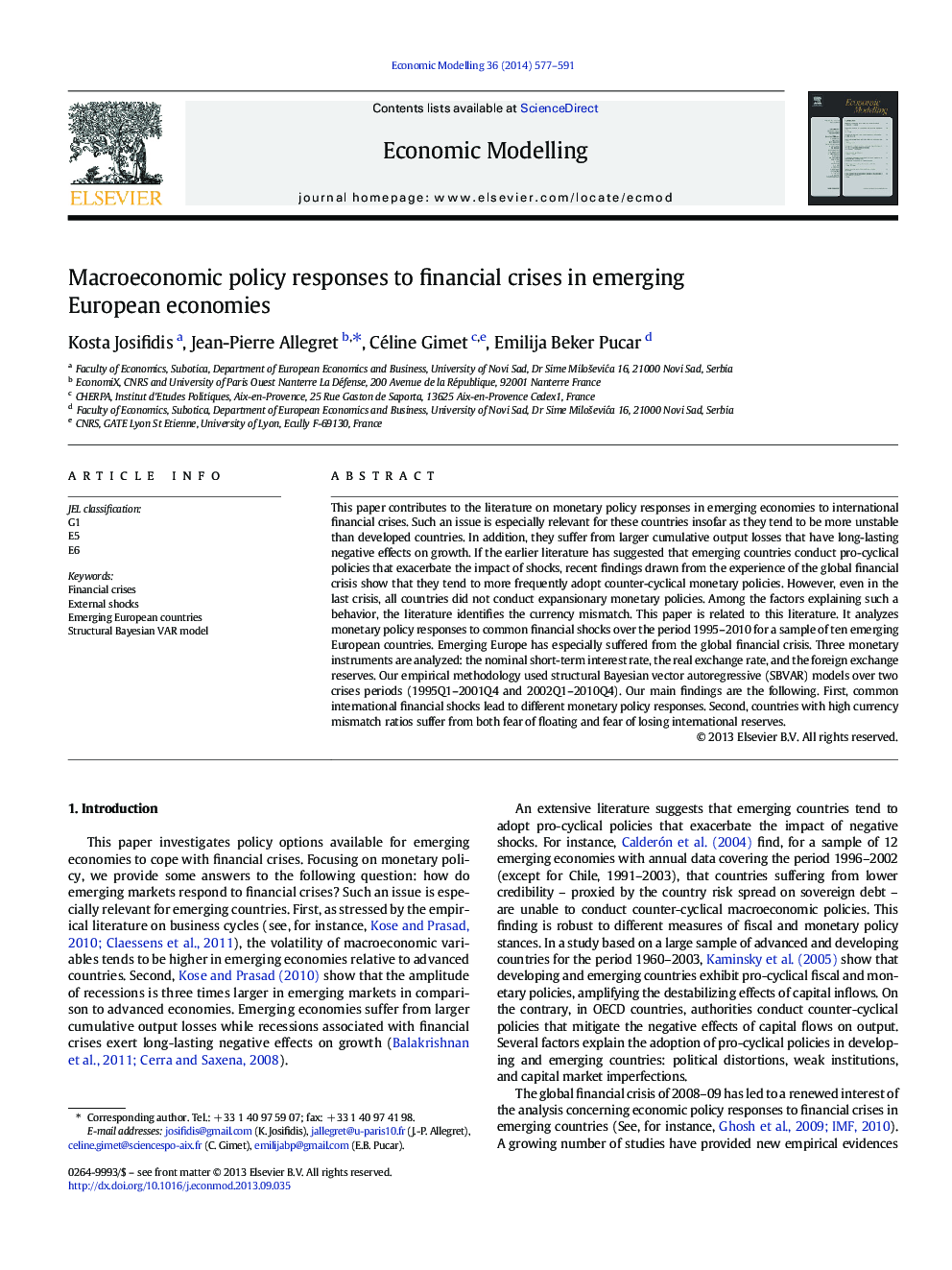| Article ID | Journal | Published Year | Pages | File Type |
|---|---|---|---|---|
| 5054331 | Economic Modelling | 2014 | 15 Pages |
Abstract
This paper contributes to the literature on monetary policy responses in emerging economies to international financial crises. Such an issue is especially relevant for these countries insofar as they tend to be more unstable than developed countries. In addition, they suffer from larger cumulative output losses that have long-lasting negative effects on growth. If the earlier literature has suggested that emerging countries conduct pro-cyclical policies that exacerbate the impact of shocks, recent findings drawn from the experience of the global financial crisis show that they tend to more frequently adopt counter-cyclical monetary policies. However, even in the last crisis, all countries did not conduct expansionary monetary policies. Among the factors explaining such a behavior, the literature identifies the currency mismatch. This paper is related to this literature. It analyzes monetary policy responses to common financial shocks over the period 1995-2010 for a sample of ten emerging European countries. Emerging Europe has especially suffered from the global financial crisis. Three monetary instruments are analyzed: the nominal short-term interest rate, the real exchange rate, and the foreign exchange reserves. Our empirical methodology used structural Bayesian vector autoregressive (SBVAR) models over two crises periods (1995Q1-2001Q4 and 2002Q1-2010Q4). Our main findings are the following. First, common international financial shocks lead to different monetary policy responses. Second, countries with high currency mismatch ratios suffer from both fear of floating and fear of losing international reserves.
Keywords
Related Topics
Social Sciences and Humanities
Economics, Econometrics and Finance
Economics and Econometrics
Authors
Kosta Josifidis, Jean-Pierre Allegret, Céline Gimet, Emilija Beker Pucar,
